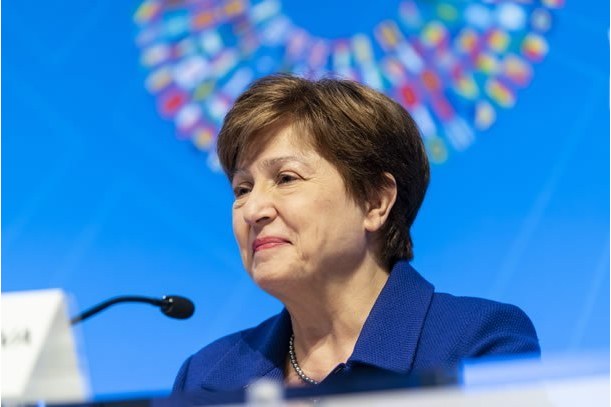Latest News
IMF survey shows decrease in global portfolio asset holdings

News Highlight
Elevated risk aversion amid increasing energy prices, heightened geopolitical and inflation risks, and tightening monetary policies in advanced economies weighed heavily on capital markets and portfolio investments.
IMF’s latest Coordinated Portfolio Investment Survey (CPIS) shows that, amid multiple shocks, global portfolio investment asset holdings decreased by 15 percent in the first half of last year, the most since 2008. The decrease is attributed to both the reduction in investments and valuation effects.
Elevated risk aversion amid increasing energy prices, heightened geopolitical and inflation risks, and tightening monetary policies in advanced economies weighed heavily on capital markets and portfolio investments, IMF’s Evrim Bese Goksu, Alicia Hierro, Rita Mesias, and Wilson Phiri wrote in their blogpost on the survey. The newest CPIS looked at cross-border portfolio investment holdings through June 2022.
“As the Chart of the Week shows, the top 10 portfolio investment holding countries, collectively accounting for about two-thirds of global positions tracked by the CPIS, experienced a sharp decline since the last reporting period six months earlier,” said the authors.
The drop was largely driven by a decline in investments by the United States (in Germany and the Netherlands), Luxembourg (in the United States, Ireland, and Japan), Ireland (in the United States and United Kingdom), and Japan (mainly in the United States). On the other hand, portfolio investment holdings of the Cayman Islands increased by 6.2 percent due to investments in the United States and Japan.
The IMF’s CPIS collects data on portfolio investment assets from more than 80 countries. It is the only global bi-annual survey of cross-border portfolio holdings by counterpart economy and by sector of holders and nonresident issuers. It shows which countries invest in a particular country, how the investments are distributed across institutional sectors as well as the currency distribution of such assets.
According to the IMF, foreign portfolio investments help global financial markets to function and provide investors with the benefits of international diversification. These investments are also beneficial as a source of financing for host economies.
Unlike foreign direct investment, portfolio investments tend to be volatile and, if not well monitored and managed, they can trigger macroeconomic challenges such as overheating of the host economy, loss of export competitiveness due to exchange rate appreciation, and higher vulnerability in the event of a crisis.
Related News
Latest Blogs
- The Museum of West African Art saga
- The complexity and complication of Nigeria’s insecurity
- Between bold is wise and wise is bold
- Prospects of port community system in Nigeria’s maritime sector
- Constitutionalism must anchor discipline in Nigerian Armed Forces
Most Popular News
- NDIC pledges support towards financial system stability
- Artificial intelligence can help to reduce youth unemployment in Africa – ...
- Nigeria’s December PMI hits 57.6 points as economic activities strengthen
- Afreximbank backs Elumelu’s Heirs Energies with $750-million facility
- Lagride secures $100 million facility from UBA
- GlobalData identifies major market trends for 2026







